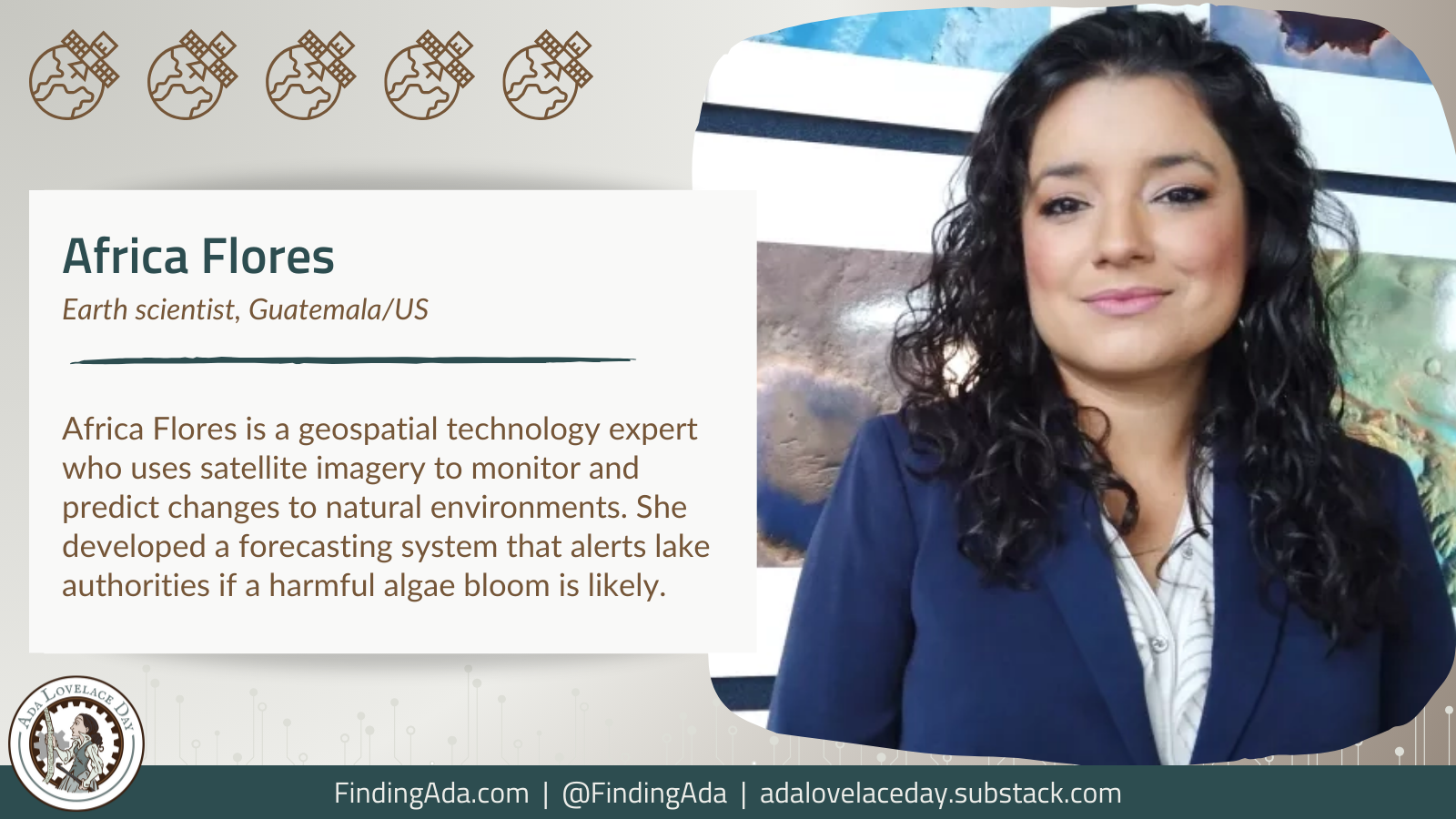Africa Flores
Africa Ixmucane Flores is an earth scientist, engineer and expert in geospatial technology. Her research uses satellite imagery to identify changes in natural habitats and the climate, with the aim of providing ecological forecasts that can benefit the environment and local communities. She is particularly renowned for her work predicting lake algae blooms and using radar to monitor changes in forests.
Flores grew up in a rural part of Guatemala where intensive agriculture was visibly damaging the natural environment, including by polluting local waterways. A desire to improve and maintain the health of her country’s lakes, rivers and forests motivated her to study environmental sciences, and in 2006 she graduated with a degree in agricultural engineering in renewable natural resources from the University of San Carlos, Guatemala City.
After working for environmental agencies in Guatemala and Panama, Flores moved to the US, obtaining her master’s at the Earth System Science Center at the University of Alabama in Huntsville (UAH) in 2013. It was here that she began her long association with SERVIR, a joint initiative of NASA and the United States Agency for International Development (USAID).
Based in Huntsville, SERVIR works to help decision-makers in regions across Latin America, Africa and Asia act on key environmental challenges such as climate change, water security and air quality. It does this by sharing and providing training in Earth observation data and geospatial technologies, which can enable more secure management of natural resources.
Having started out as a graduate research assistant, Flores is now SERVIR’s lead scientist on projects covering land use and land cover. She is responsible for modelling environmental changes in regions that don’t have sufficient science infrastructure or resources, offering visualisations of potential environmental damage so that people can predict risk and make key decisions about funding.
In 2019, Flores received a grant from National Geographic and Microsoft to collaborate with the environmental authority at Lake Atitlán, southwestern Guatemala. The deepest lake in Central America, Lake Atitlán had recently suffered from a harmful algae bloom (a rapid increase in algae that can have damaging effects on marine ecosystems). Using artificial intelligence and satellite data, Flores and her team designed a “lake forecasting system” that gives authorities an early warning if another bloom is likely. The SERVIR team now hopes to replicate the success of the Lake Atitlán project to protect other lakes.
Flores also led a NASA-funded collaboration between SERVIR and SilvaCarbon, a US government programme that works to support tropical countries in monitoring carbon in forests. The project examined the use of synthetic aperture radar (SAR, a remote sensing tool that bounces a microwave radar signal off the Earth’s surface) to detect key environmental changes, leading to the creation of a handbook on using SAR to monitor forests and other ecosystems.
Alongside her field work, Flores is currently a PhD candidate in natural resource sciences at McGill University. She was named one of 11 International Changemakers by the National Geographic Society and Microsoft in 2019, the only honoree to hail from Latin America. She is also a National Geographic Explorer, a title that recognises “exceptional individuals” whose work in science is “illuminating and protecting our world”.
You can follow her work here:
Twitter: @africa_science
Further Reading
- Africa I Flores-Anderson, National Geographic Explorer Directory
- Keeping Guatemala’s Lake Atitlán Crystal Clear, Jacob Ramthun, SEVIR Global, 18 July 2023
- Africa Ixmucane Flores-Anderson, Steffie S. Kim, NASA Science, 10 August 2022
- This scientist uses data from space to map clean water across the Americas, Popular Science, 5 November 2020
- Africa Flores: A “Breakthrough Scientist”, Lia N. Poteet, NASA Earth Science Applied Sciences, 16 October 2020
- Watching Earth change from space: an interview with Africa Flores-Anderson, Cassie Freund, Massive Science, 3 October 2020
- UAH Earth system scientists produce online forest remote sensing handbook, Jim Steele, UAH, 2 May 2019
- ESSC research scientist receives AI for Earth Innovation grant, Jim Steele, UAH, 9 January 2019
Written by Moya Crockett, with thanks to Stylist for their support.
